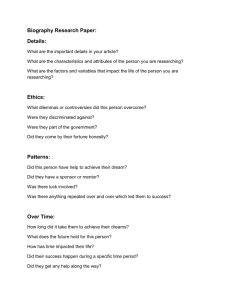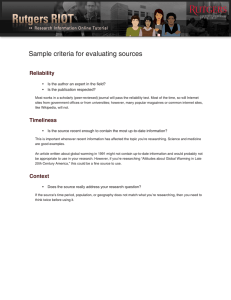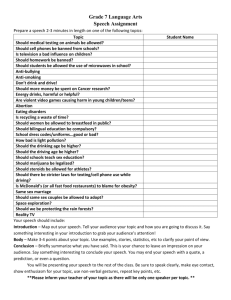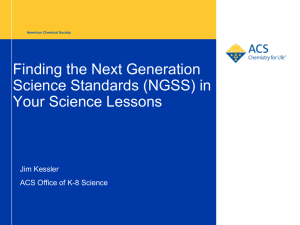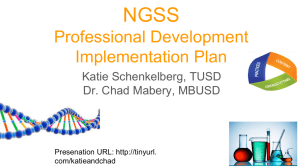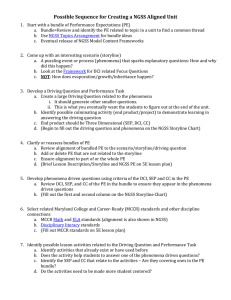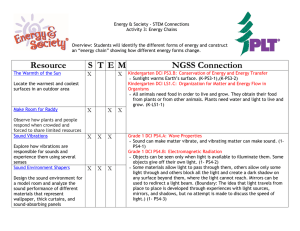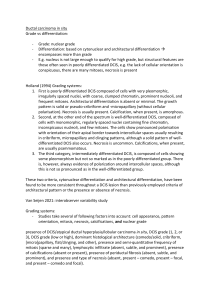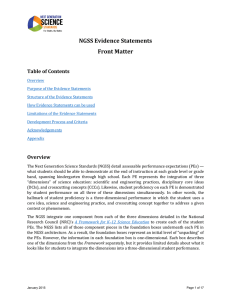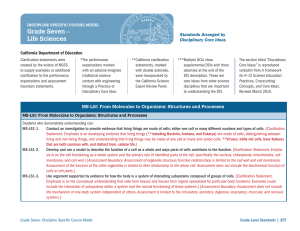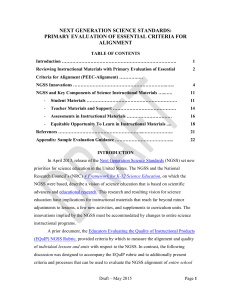Powerpoint (download)
advertisement
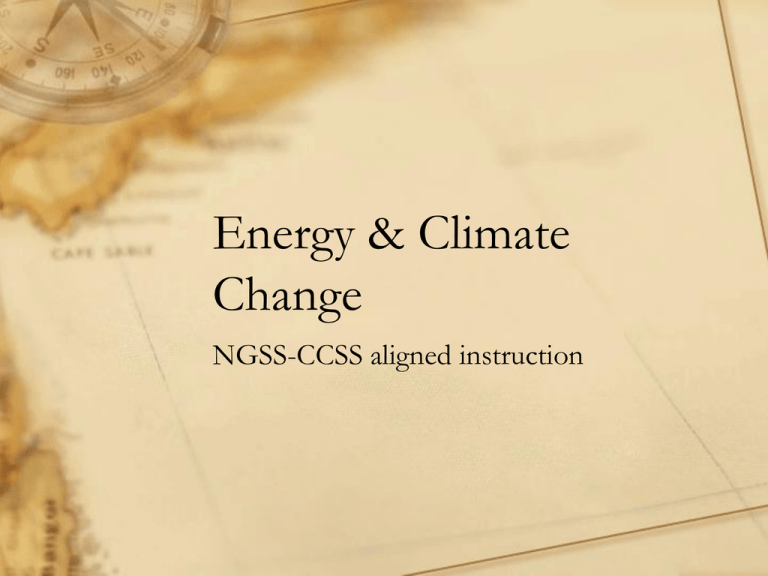
Energy & Climate Change NGSS-CCSS aligned instruction What is today’s goal? • Demonstrate one structure for integrating NGSS and Common Core ELA standards • Demonstrate a lesson that is structured like the Smarter Balance Performance Assessment • Provide a lesson on energy sources Caveats • I teach college, not high school or middle school. • The text seems accessible to me, but I’m not an expert. • You are just a little bit guinea pigs – this structure and techniques are tried and true but this particular activity is new, and I’m doing it with my students next week. So… • Let’s think together about how to make this work better HS DCIs • Changes in the atmosphere due to human activity have increased carbon dioxide concentrations and thus affect climate. (HSESS2-6),(HS-ESS2-4) • All forms of energy production and other resource extraction have associated economic, social, environmental, and geopolitical costs and risks as well as benefits. New technologies and social regulations can change the balance of these factors. (HS-ESS3-2) • MS DCI Human activities, such as the release of greenhouse gases from burning fossil fuels, are major factors in the current rise in Earth’s mean surface temperature (global warming). Reducing the level of climate change and reducing human vulnerability to whatever climate changes do occur depend on the understanding of climate science, engineering capabilities, and other kinds of knowledge, such as understanding of human behavior and on applying that knowledge wisely in decisions and activities. (MS-ESS3-5) The activity – get in 7 groups • You are all aides to US Senators from specific states. • The US Senate Committee on Energy and Natural Resources is holding a hearing on national energy policies. The goal is to redesign the country’s energy policy. • Your job is to gather and organize information for your boss, then draft one version of a national energy policy Task #1: Researching your energy source(s) Each state team is researching one or two energy sources that are important for that state. Follow the procedure on the handout to read the article and organize your answers in the chart. The text is largely from the U.S.Energy Information Administration Energy Kids website (URL at the end of your reading) with edits and a few additions from me and other websites (also listed) Task #2: Share the info • Reorganize into sharing groups • Each state rep teaches the others in that group about one aspect of your energy source. • The others record it in their charts. Task #3: Design an energy policy • Back to your state groups. Design a policy that favors your state and serves the country. • Choose 2 energy sources to promote and 2 to discourage. • Tools: − Subsidies − Taxes − Anti-pollution regulation The Great Debate • Each state team has 2 minutes to present their policy • 5 minute huddle • Rebuttals – 1 minute per state team.
